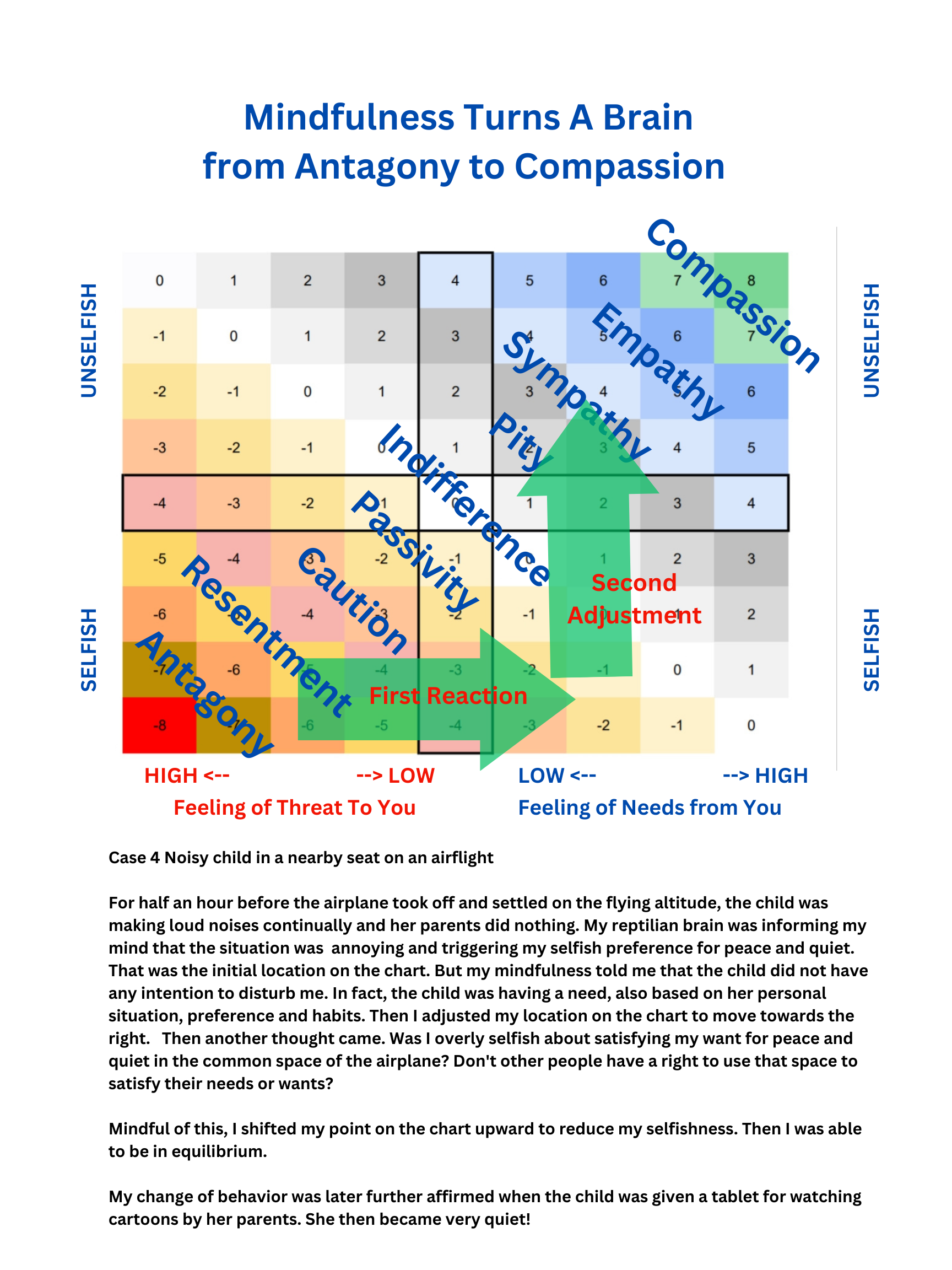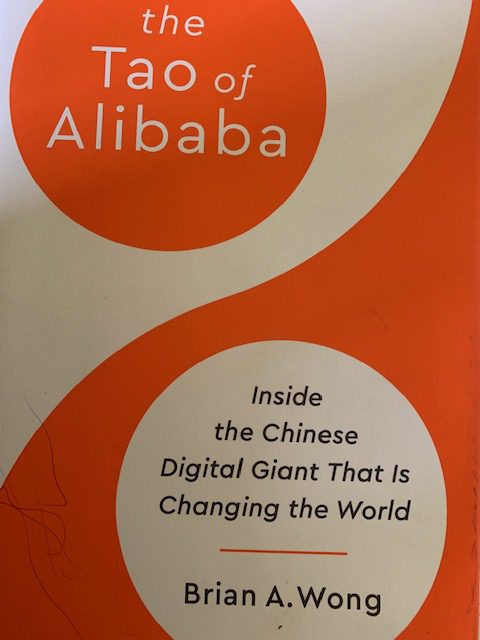Three Friends: Bill or Billy ( an Architect ), James ( a lawyer ), and Stephen ( an Electrical Engineer ), were having fun lately – playing psychologists and seeking Truth and Meaning about COMPASSION.
Below is a report by Stephen which illustrates their recent collective FUN & CREATIVE Pursuit.
Mindfulness Turns Fear to Compassion
The following four Charts were built on ideas and works of three friends. More immediately, some of the ideas came from my friends Bill Lee and James Luce, and I simply internalized them with my personal philosophy to combine the two charts into one. This figure shows the two original charts. The upper right one came from Bill’s readings on Compassion. The lower left chart was created by James at the request of Bill.

I recognized that both charts have two axes and that if the value of the horizontal axis of one chart is rephrased to be the opposite of the value of the other horizontal axis, then both charts become connected. The same reasoning suggests that the two vertical axes can also be rephrased so that the two charts can be interpreted as a single chart. This thought results in the following chart. The horizontal axis ranges from High Feeling of Threat to You, to Low Feeling of Threat to You, and then crosses over the vertical axis to Low Feeling of Needs from You, and then to High Feeling of Needs from You.

The vertical axis ranges from High degree of Selfishness from the bottom of the chart to High degree of Unselfishness at the top of the chart. Then a color scale is painted on each little square of the chart to start from Red to represent an extreme feeling of threat and selfishness which causes the primitive reptilian brain in humans to attack out of fear and survival instinct. The color changes towards the Green color representing compassion at the upper right corner of the chart.

Then the second chart was created by adding three application cases to illustrate how Mindfulness can help a person to modify the reflex instinct of fear and survival towards the humanistic behavior is controllable by the more evolved human brain which can make reasoned decisions according to our personal values which take into account our tradeoffs between the self and others, as well as our often-flawed instinctive awareness of the intention of the other person.
The final chart adds a fourth case to the examples. It was an actual experience yesterday while traveling in an airplane.

April 12, 2023
Stephen Lee
Reflection
Compassion, Fear, Mindfulness
___________________________________________________________________



